Prof. Sani Abubakar Lugga, the Wazirin Katsina made a shocker recently with a call to action, urging the northern region of Nigeria to unite and prepare for self-determination, echoing the sentiments of their southern counterparts. This pivotal moment prompts an in-depth exploration of the underlying reasons driving the agitation of Nigeria’s diverse ethnic groups. In this special report, Korede Abdullah, Southwest correspondent for Africa Health Report, delves into the complexities of this issue, shedding light on the factors fuelling these divisions and the potential implications for the nation’s future.
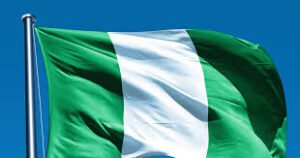
A Reverberating Call
A reverberating call by Prof. Sani Abubakar Lugga, the 5th Wazirin Katsina, recently echoed across Nigeria’s northern expanse, beckoning its people to rise and assert their collective identity and self-determination. Prof. Lugga ignited the awakening at a community engagement event in Katsina, convened by the Coalition of Northern Group.
Lugga’s impassioned plea urged northerners to steel themselves for the looming specter of separation from Nigeria, mirroring the fervent secessionist calls from the South.
He bemoaned the north’s fragmentation and lack of unity, contrasting it with the unwavering resolve of Biafran and Yoruba agitators championing the cause of the Oduduwa Republic.
Professor Lugga further sounded a warning call to the North, urging leaders to take a cue from the South’s proactive measures in tackling security challenges.
Despite the Southwest people’s relatively less severe security situation, they have established regional security forces like Amotekun, whereas the North remains passive.
The Wazirin Katsina lamented that the inertia of the northerners was concerning, especially considering the historical apprehensions surrounding the amalgamation of the North and South.
He added that Nigeria’s early leaders were wary of this union, and argued that the country remains fragile to this day.
Lugga’s warning is stark: if the South were to succeed in breaking away, the North might struggle in a hard way to survive without proper preparation.

A Radical Departure
This is a radical departure from the posturing of the people of the northern region over the years and the first time a call for self-determination, euphemism for secession, would emanate from that part of the country.
In 2021, Arewa Consultative Forum (ACF) revealed that Northern Nigeria would never support secession calls because there’s nothing wrong with the extant structure in the country despite the fact that calls for secession had continued to gain momentum as at the time.
Speaking on behalf of the ACF, Emmanuel Yawe, the spokesperson of the organization stated that secession attempts would only worsen the problems ravaging the country and could even lead to a civil war.
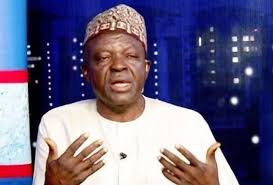
He said, “There is no way any part of Nigeria will secede without a civil war. We are so integrated that it is impossible for us to sit at a conference table and allow each part to go their ways, it’s not possible, it’s not a tea party, there will be war.
If any part of Nigeria wants to secede, there will be war, maybe even more serious war than what we had before between 1967 and 1970. So, if anyone is calling for secession, he’s calling for war.
“And we in the North fought the war to keep this country together, so it will be a contradiction for those of us who tried to stop this country from breaking up to now be engaging in activities that will break this country; we don’t want this country to break up.
“Nigeria is a great country as it is. We have problems but those problems are not enough for us to break up”
Today Nigeria is facing rising tensions from various separatist movements, including the Indigenous People of Biafra (IPOB), the Movement for the Actualization of the Sovereign State of Biafra (MASSOB), the Niger Delta Avengers, the Oodua Peoples Congress (OPC), and the Middle Belt Forum.
These groups are driven by feelings of marginalization and demands for greater autonomy or independence.
IPOB and MASSOB Key Players in the Movements
The push for an independent Biafran state has gained significant momentum, with two prominent groups, the Indigenous People of Biafra (IPOB) and the Movement for the Actualization of the Sovereign State of Biafra (MASSOB), leading the charge.
At the forefront of this movement is IPOB’s leader, Nnamdi Kanu, a British-Nigerian citizen who has been vocal about his advocacy for Biafran independence.
IPOB, founded by Kanu in 2012, has emerged as the largest Biafran independence organization, with a significant following and a strong online presence.
The group’s demands for self-determination are rooted in historical grievances, including the Nigerian Civil War that ravaged the region from 1967 to 1970.
POB cites issues such as poor investment, political alienation, and ethnic marginalization as driving factors behind their quest for independence.
MASSOB, founded in 1999 by Ralph Uwazuruike, has also been advocating for an independent Biafran state.
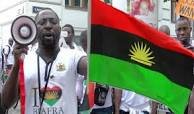
However, the group has faced internal conflicts and state repression, which has weakened its influence. Despite this, MASSOB remains a key player in the Biafran separatist movement.
The Nigerian government has responded to the separatist movements with force, leading to allegations of human rights abuses and extrajudicial killings.
The government’s actions have only fueled the tensions, with IPOB and MASSOB gaining more support from sympathizers.
Niger Delta Avengers
The Niger Delta Avengers (NDA) is a militant group in the Niger Delta region of Nigeria. The group publicly announced their existence in March 2016. The group claims it’s fighting for control over the region’s oil resources and greater autonomy for the Niger Delta people.
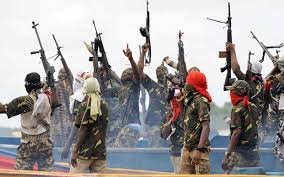
The militant group has been wreaking havoc on Nigeria’s oil industry, attacking facilities in the delta and causing oil production to plummet to its lowest level in twenty years.
The group’s actions have led to the shutdown of oil terminals, resulting in Nigeria losing its title as Africa’s largest oil producer to Angola.
This decline in oil output has severely impacted Nigeria’s economy, which relies heavily on the oil industry for government revenue.
The NDA says its goal is to establish a sovereign state in the Niger Delta, and they’ve threatened to continue disrupting Nigeria’s economy until their demands are met.
The group criticized the former president, Muhammadu Buhari, for neglecting the region and detaining Biafran independence activist Nnamdi Kanu..
The NDA’s members describe themselves as “young, educated, well-traveled…and educated in east Europe,” indicating a sophisticated and organized group.
The Oodua Peoples Congress (OPC)
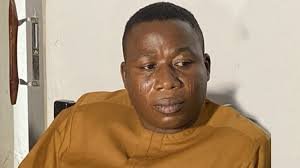
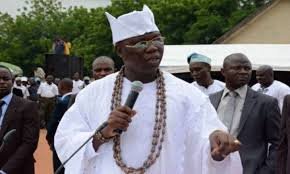
OPC is a Yoruba nationalist, regionalist organization, it initially started as a vigilante group to defend the Yoruba land before its activities metamorphosed to ethnic agitations. It is based in southwestern Nigeria and has grassroots support within the Yoruba ethnic community
The Oodua Peoples Congress is seeking greater autonomy for the Yoruba people and the creation of an Oduduwa Republic.
-Middle Belt Forum
Agitation, Symptoms of Deeper Issues
According to political analysts, these movements are a symptom of Nigeria’s deeper issues, including ethnic and religious tensions, economic disparities, and poor governance. “Ethnicity is the most difficult type of cleavage to manage,” notes one expert, highlighting the challenges of addressing these complex issues ¹.
To address these tensions, analysts recommend a more inclusive and decentralized approach to governance, allowing for greater autonomy and representation for Nigeria’s diverse ethnic groups. This could involve reforms to the country’s federal structure, economic empowerment programs, and initiatives to promote national unity and social cohesion.
Ultimately, Nigeria’s stability and unity depend on its ability to address the root causes of these separatist movements and promote a more inclusive and equitable society for all its citizens.
The question on the lips of many Nigerians is, what has now changed that made the northern region woken up from their slumber?
Deep-seated Tensions and Divisions
This statement underscores the deep-seated tensions and divisions within Nigeria, where ethnicity and regional identity continue to play a significant role in shaping the country’s socio-political landscape
Like a lightning rod, Lugga’s call has attracted varied reactions from Nigerians, some hailing it as a legitimate assertion of self-determination. Others view it as a provocative salvo, potentially inflaming tensions.
As Nigeria grapples with the fissures of secessionist sentiment, Lugga’s rallying cry has rekindled debates on unity and national identity.
Marginalization and Exclusion
The country’s structural disparity has created a sense of marginalization among various ethnic, religious, and cultural groups.
The north, which constitutes 79% of the country’s land mass and 53.6% of its population, feels entitled to governance power, leading to tensions with the south.
This perceived marginalization has fuelled separatist movements, with groups like the Indigenous Peoples of Biafra (IPOB) and the Oduduwa Republic advocating for independence.
Cultural and Linguistic Differences
Ethnicity has become a potent instrument of mobilization, with dominant groups using threats of secession as bargaining tools.
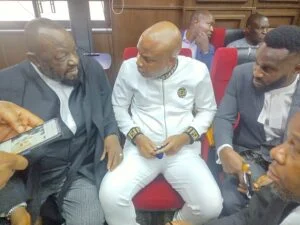
The detention of IPOB leader Nnamdi Kanu, for instance, sparked ethnic solidarity and reinforced perceptions of injustice against the Igbo people.
Cultural and linguistic differences have deepened divisions, making it challenging to address grievances and promote national unity.
Nigeria’s Delicate Ethnic Tapestry
Nigeria, Africa’s most populous nation, boasts an incredible mosaic of over 250 ethnic groups, each woven with its distinct culture, language, and traditions.
From the Hausa-Fulani in the north to the Igbo in the southeast and the Yoruba in the southwest, this rich diversity has long been a source of national pride.
However, this very diversity has also been a persistent fault line, fuelling historical tensions and ongoing challenges. The complexities of Nigeria’s ethnic landscape have often led to conflicts over resources, power, and identity.
The Question of the Middle Belt
The Middle Belt region of Nigeria has long been plagued by marginalization and violence, trapped in the midst of centuries-old conflicts between the country’s northern and southern regions.
This strategic territory, spanning across 10 states, has suffered from neglect, economic disparity, and ethnic clashes, leaving its diverse population feeling voiceless and exploited.
For decades, the Middle Belt has been torn between the predominantly Muslim north and the Christian south, with its own unique cultural identity and interests often overlooked.
Recent tensions have reignited calls for greater autonomy or even secession, with groups like the Middle Belt Forum advocating for recognition and protection of the region’s rights.
As Nigeria grapples with its fractious identity, the Middle Belt’s plight has become a critical test of the country’s ability to address its deep-seated divisions and forge a more inclusive future.
Current Challenges and Rising Tensions
Today, Nigeria faces escalating secessionist movements, resource-driven conflicts, and social unrest.
The Biafran agitation in the southeast, the Yoruba nation advocates in the southwest, and the simmering tensions in the Niger Delta all underscore the pressing need for inclusive dialogue and meaningful reforms.
Against this backdrop, leaders like Prof. Lugga are urging Nigerians to unite and assert their collective identity.
Lugga’s recent call for northerners to prepare for self-determination has sparked intense debate, highlighting the complexities of Nigeria’s ethnic puzzle.
A Complex Ethnic Landscape
Nigeria’s population of approximately 220 million people is comprised of three main ethnic groups: Hausa-Fulani (29%), Yoruba (21%), and Igbo (18%). Other notable ethnic groups include the Ijaw, Kanuri, and Fulani. This diversity is further complicated by regional and religious divisions.
Legacy of Colonialism and Conflict
The country’s colonial past has contributed significantly to its ethnic tensions. The British colonial powers artificially created Nigeria, merging disparate ethnic groups into a single entity. This led to tensions between groups with competing interests and identities.
The Biafran Civil War (1967-1970) between the Igbo-dominated secessionist state and the federal government resulted in the loss of over a million lives.
More recent conflicts, such as the Boko Haram insurgency and farmer-herder clashes, have further exacerbated ethnic tensions.
Efforts Towards Unity in Nigeria
Nigeria has been making significant efforts towards promoting unity and inclusivity despite facing numerous challenges.
To address the growing agitations for self-determination in Nigeria, experts suggest that the government should consider several key steps.
Holding a Referendum
Firstly, holding an independence Referendum. The analysts said it would provide a platform for various ethnic groups to determine their fate and potentially ease tensions.
This move would demonstrate the government’s willingness to listen to the concerns of marginalized communities and give them a sense of ownership over their future.
Self-determination Clause in the constitution
Additionally, Inclusion of Self-determination in the Constitution and addressing Historical Grievances are crucial.
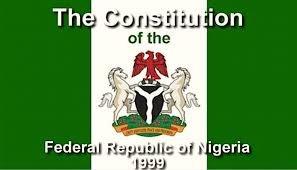
This would involve providing justice and compensation for victims of the Nigerian Civil War and subsequent human rights abuses, as well as acknowledging the root causes of these conflicts.
All-inclusive government
The government should also focus on promoting inclusive governance, equitable resource distribution, and economic development in marginalized regions.
By taking these steps, the Nigerian government can address the underlying drivers of separatist movements and foster a more united and peaceful nation.
Researchers emphasize that a combination of these measures, rather than solely relying on police action, is essential to mitigate the agitation for self-determination and ensure long-term stability.
2014 National Conference Report
One notable effort was the 2014 National Conference convened by the then President Goodluck Jonathan, which brought together representatives from various ethnic and regional groups to address long-standing grievances and work towards a more harmonious future
This conference aimed to foster dialogue and understanding among Nigeria’s diverse populations. The report of the conference has been kept in the cooler without being officially released.
Federal Character
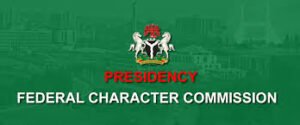
Dr Murtala Oluwadare, a political scientist said the Federal Character Commission should be given more strength.
According to him, “The FCC aims to address historical imbalances, promote national cohesion, and foster a sense of belonging among Nigeria’s diverse populations.
“The commission has been instrumental in promoting representation and equity across different regions and ethnic groups.”
Dr Oluwadare added that by ensuring that government institutions and agencies reflect Nigeria’s diversity, the commission helps to prevent any one group from dominating others.
Some other Nigerians who spoke with Africa Health Report (AHR) said that initiatives like the National Youth Service Corps (NYSC) should be made to encourage inter-ethnic understanding by bringing young people from different backgrounds together to serve and learn from one another.
Analysts said that by addressing the root causes of conflict and promoting dialogue, representation, and understanding, Nigeria can move closer to achieving sustainable national integration and unity
As Nigeria continues on this path, it’s essential to build on these initiatives and foster a sense of shared citizenship and national identity.
A Fragile Balance
Nigeria’s ethnic diversity remains a double-edged sword – a source of strength and weakness. As the country navigates its complex identity, it must address historical grievances and work towards a more inclusive, equitable future.
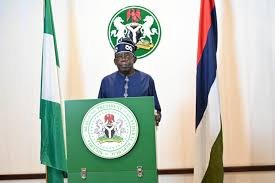
“The unity of Nigeria is not negotiable,” said President Bola Tinubu. “We must prioritize dialogue, understanding, and cooperation to build a stronger, more harmonious nation.”
Only time will tell if Nigeria can strike a balance between its diverse ethnic groups and forge a path towards lasting peace and prosperity.


